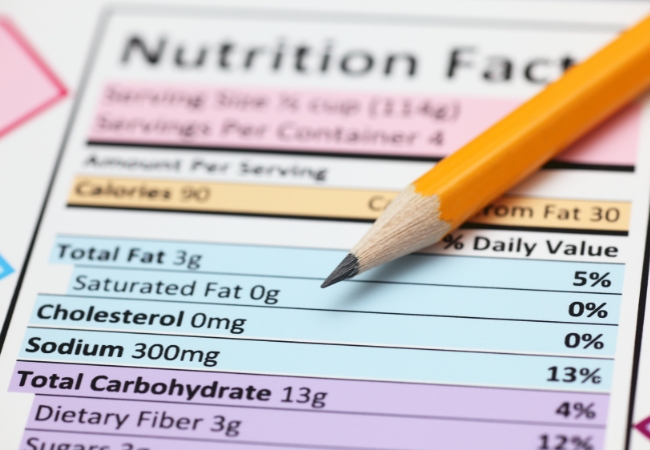Discovering that you’re pregnant, whether planned or unexpected, can be an emotionally overwhelming experience.
Once you move past your initial reaction of utter happiness or complete shock, you may wonder, “What should I do now?” First and foremost, know that you have a sea of resources available to provide you support, including the loved ones in your life.
I’m so excited. What next?
1. Choose Your Doctor or Midwife
One of the first things on your checklist should be finding a doctor (an obstetrician) or midwife if you don’t have one already. Take your time with this decision.
This will be the person you have checkups with throughout the pregnancy, and they’ll likely be the one to help you deliver the baby. Keep in mind that many obstetrician groups actually use an on-call system.
This means that patients will most likely see multiple providers throughout their pregnancies, and whoever is on call when a patient delivers will assist in delivery.
A crucial factor to consider when selecting a healthcare provider for your pregnancy journey is ensuring that you feel comfortable and supported by them.
You’ll want to build a strong and trusting relationship with your chosen doctor or midwife, as they will guide you through this transformative experience. Look for someone who listens to your concerns, communicates effectively, and whom you feel understands your needs.
It’s also important to consider the location of the hospital where your doctor has delivery privileges.
The proximity of the hospital to your home could be an essential factor during labor and delivery. Additionally, inquire about the hospital’s facilities and the resources available for prenatal care and childbirth. Ensuring that both your doctor and the hospital meet your expectations will provide you with peace of mind as you progress through your pregnancy.
2. Schedule Your Prenatal Appointments
Once you’ve selected your doctor or midwife, schedule your first prenatal appointment. During this visit, your healthcare provider will review your medical history, discuss any current health concerns, and answer any questions you may have about pregnancy. They will also perform an initial physical exam and may conduct certain tests to confirm the pregnancy and estimate your due date.
Subsequent prenatal appointments will be scheduled at regular intervals throughout your pregnancy.
These visits are designed to monitor your health and the development of your baby, address any concerns or discomforts, and provide you with guidance on nutrition, exercise, and overall wellness during pregnancy.
It’s important to attend all scheduled prenatal appointments to ensure the best possible care for you and your growing baby.
These appointments are not only essential for monitoring the health of both you and your baby, but they also offer an opportunity to ask questions, seek advice, and gain reassurance from your healthcare provider.
Building a supportive and communicative relationship with your doctor or midwife is key to navigating the complexities of pregnancy, and attending prenatal appointments consistently fosters this bond.
Table 1: Prenatal Appointment Schedule
| Trimester | Appointment Schedule |
| First trimester | Every four to six weeks |
| Second trimester | Every four weeks |
| Third trimester | Every two weeks until 36 weeks, then weekly |
Table 1: Example schedule for prenatal appointments
3. Take Prenatal Vitamins
In addition to maintaining a balanced and nutritious diet, taking prenatal vitamins is highly recommended during pregnancy.
Prenatal vitamins are specially formulated to provide essential nutrients that support the growth and development of your baby. They typically contain higher levels of folic acid, iron, calcium, and other key vitamins and minerals necessary for a healthy pregnancy.
Even if you’ve been diligent about maintaining a healthy diet before pregnancy, taking prenatal vitamins helps ensure that you and your baby receive adequate amounts of essential nutrients.
Folic acid, in particular, plays a crucial role in preventing neural tube defects in the developing fetus, making it a vital component of prenatal care. Consult your healthcare provider to determine which prenatal vitamin is best for you, as individual nutritional needs can vary.
As part of your prenatal care regimen, incorporating prenatal vitamins into your daily routine supports the overall health and well-being of both you and your baby. Remember that these supplements are intended to complement a balanced diet, not replace it.
Therefore, continue to focus on consuming nutrient-rich foods while using prenatal vitamins to fill potential gaps in your dietary intake.
4. Avoid Alcohol, Tobacco, Marijuana, and Excess Caffeine
During pregnancy, it’s crucial to prioritize the health and safety of yourbaby. Abstaining from alcohol, tobacco, and marijuana is essential to safeguarding the well-being of your developing baby. These substances can pose serious risks to fetal development and may lead to complications during pregnancy and childbirth.
Alcohol consumption during pregnancy has been linked to various birth defects and developmental issues, collectively known as fetal alcohol spectrum disorders (FASDs).
It’s important to completely avoid alcohol during pregnancy, as there is no known safe level of alcohol consumption that can guarantee the absence of harm to the fetus.
Similarly, smoking and exposure to secondhand smoke can have detrimental effects on pregnancy. Smoking during pregnancy increases the risk of preterm birth, low birth weight, and certain birth defects.
Additionally, exposure to secondhand smoke can also adversely impact fetal development. Quitting smoking and avoiding exposure to smoke are crucial steps toward ensuring a healthy pregnancy for both you and your baby.
Furthermore, the use of marijuana during pregnancy has been associated with potential risks to the fetus, including low birth weight and developmental problems.
While research regarding the effects of marijuana use during pregnancy is ongoing, it’s generally recommended to refrain from using marijuana to protect the health and well-being of your baby.
Excessive caffeine intake should also be avoided during pregnancy. High levels of caffeine have been linked to an increased risk of miscarriage and low birth weight.
Limiting your daily caffeine intake to 200 milligrams—equivalent to about one 12-ounce cup of coffee—is generally considered safe during pregnancy. Be mindful of the caffeine content in other beverages and foods, such as tea, soda, and chocolate, to ensure that you stay within the recommended limit.
By avoiding these substances and making conscious choices to prioritize the health of your baby, you’re taking proactive measures to promote a safe and healthy pregnancy.
5. Avoid These Foods
In addition to abstaining from harmful substances, paying attention to your diet is essential for a healthy pregnancy. Certain foods and dietary choices can pose risks to the well-being of both you and your baby. Being mindful of what you consume can help mitigate potential health concerns and contribute to a positive pregnancy experience.
- Raw or Undercooked Meat: Raw or undercooked meat may contain harmful bacteria, such as Salmonella, E. coli, or Listeria, which can lead to foodborne illnesses. To minimize the risk of infection, ensure that all meat is thoroughly cooked before consumption.
- Unpasteurized Dairy Products: Unpasteurized milk and dairy products can harbor bacteria such as Listeria, which can be particularly harmful during pregnancy. Opt for pasteurized dairy products to reduce the risk of bacterial contamination.
- Certain Types of Fish: Some types of fish, particularly large predatory fish such as shark, swordfish, king mackerel, and tilefish, may contain high levels of mercury, which can be harmful to the developing nervous system of the fetus. Limit consumption of these fish and opt for varieties that are lower in mercury, such as salmon, shrimp, and catfish.
- Raw or Undercooked Eggs: Raw or undercooked eggs and foods containing raw eggs, such as homemade mayonnaise or certain salad dressings, can potentially be contaminated with salmonella. Ensure that eggs are thoroughly cooked before consumption or opt for pasteurized egg products.
High-Mercury Fish | Low-Mercury Alternatives |
| — | —– |
| Shark | Shrimp |
| Swordfish | Salmon |
| King mackerel | Pollock |
| Tilefish | Catfish |
Table 2: High-mercury fish and their low-mercury alternatives
Maintaining a well-balanced and nutritious diet while being mindful of potential food-related hazards is crucial for ensuring a healthy pregnancy.
By making informed choices about your dietary habits, you can contribute to the well-being of both you and your baby throughout the course of your pregnancy.
6. Calculate Expenses
Preparing for parenthood involves considering the financial aspects of raising a child. As you navigate the journey of pregnancy, it’s important to start thinking about the costs associated with childbirth, postnatal care, and the upbringing of your child.
Understanding and planning for these expenses can help alleviate financial stress and allow you to focus on the joyous experience of welcoming a new member into your family.
- Childbirth Costs: Investigate and understand the potential costs associated with childbirth, including hospital fees, obstetrician or midwife charges, and any additional medical services that may be required. Review your health insurance coverage to determine what expenses will be covered and what out-of-pocket costs you may need to anticipate.
- Postnatal Care: Beyond the delivery, consider the expenses related to postnatal care, such as pediatrician visits, vaccinations, and any necessary medical treatments for the newborn. Understanding these costs can assist you in creating a financial plan tailored to your family’s needs.
- Ongoing Childcare Expenses: Begin to outline the potential ongoing expenses associated with childcare, such as diapers, formula (if applicable, clothing, and other essential baby supplies. Creating a budget that accounts for these recurring expenses can help you establish a financial framework for the early stages of parenthood.
- Parental Leave and Work Arrangements: Consider the impact of parental leave on your household income. Review your options for maternity or paternity leave, as well as any available benefits or support programs provided by your employer or government agencies. Planning for potential changes in work arrangements and income can provide greater financial security during the transition into parenthood.
- Childcare Services: If returning to work is part of your post-pregnancy plan, explore childcare options and assess associated costs. Researching daycare facilities, nanny services, or family care arrangements can give you an understanding of the financial commitment required for quality childcare.
By proactively addressing the financial aspects of pregnancy and parenthood, you can lay the groundwork for a more stable and prepared transition into this new phase of your life.



